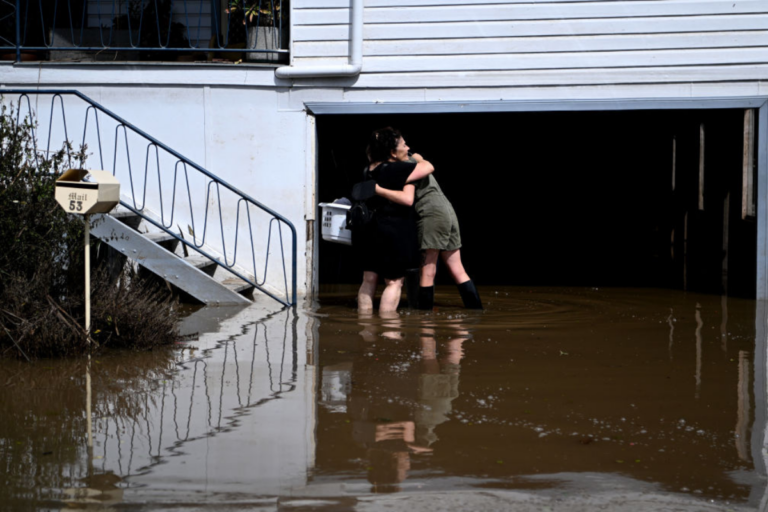Gaslighting is a serious type of emotional abuse and manipulation – and it happens more often than you’d expect. We explain what gaslighting means and how to spot some of the signs of this behaviour in relationships.
The term ‘gaslighting’ has become more frequently used in recent years – from so-called ‘political gaslighting’ in America, to people accusing each other of gaslighting in normal, everyday disagreements and arguments.
While there is some truth in popular associations with the word, it’s important to understand what a real case of gaslighting involves so we can identify it and treat it with the seriousness it deserves.
What does gaslighting mean?
The term gaslighting originates from the 1944 film ‘Gaslight’, about a woman whose husband slowly manipulates her into believing she is going insane. In the film, the female protagonist sees the lights flicker for no reason, but her husband tells her that it’s all in her head. Since then, the word has been adopted by psychologists, criminologists and lawyers to refer to a harmful form of manipulation.
Motivated by the desire to control another person, a gaslighter erodes their victim’s confidence by leading them to constantly doubt their own sanity, memory, intelligence and self-worth. They may even perform trickery, like moving household objects and then denying having done so to foster paranoia and self-doubt. True gaslighting is not mere pig-headedness, tactlessness or poor communication. It is a conscious, or sometimes learned, strategy used to control and weaken another person.
Gaslighting goes beyond not being able to accept a different point of view to your own. It is a targeted attempt to dominate another person and shirk accountability for wrongdoing by personally attacking the victim.
What are some examples of gaslighting?
The old saying ‘sticks and stones can break your bones, but words will never hurt you’ doesn’t apply for victims of gaslighting. When a person hears repeated statements about themselves while they’re in a vulnerable state, it can lead to severe long-term psychological impacts.
Gaslighters use several strategies to create doubt and low self-esteem in their victims. If you repeatedly hear any of these statements in your relationship, treat them as red flags:
- “You must be insane.”
- “What is wrong with you?”
- “You really need help.”
- “Can you hear yourself?”
- “You know you have a terrible memory.”
- “I can’t believe you’re crying about this. You’re overreacting.”
- “You should be sorry for what you’ve done.”
Such statements are aimed at minimising, discrediting, denying and diverting the victim’s point of view. In a relationship, a gaslighter might say something to their partner like, “I’ll keep your bank cards because we know you keep losing things and can’t be trusted to look after them.”
A claim like this could be partly true, or completely made up. But the victim will come to believe their abuser and hand over power to them, making them vulnerable to losing their financial independence. It can also breed anxiety, meaning the victim is too anxious and insecure to seek support from people who might be able to help.
Why do people gaslight?
In healthy relationships, both parties want the other person to trust their own judgement and feel secure about who they are. On the other hand, someone who gaslights can communicate in a way that has their friend, partner or family member experience self-doubt and confusion, and have them making constant apologies. As a result, those who gaslight tend not to target people with high levels of assertiveness, or a strong sense of self-belief. At the same time, anyone can still be a victim of gaslighting.
Often there are undiagnosed mental health issues for the gaslighter, such as controlling tendencies, trauma, narcissism, or a personality disorder. In some cases, they’ve witnessed gaslighting growing up and internalised the behaviour.
The effects of gaslighting enable the perpetrator to feel powerful, get what they want and avoid responsibility. They can lie and do harm without ever being held to account, because the victim becomes isolated from any support network that might step in.
What are the impacts on the victim?
This surreal interpersonal dynamic eventually leads the victim to doubt their grip on reality and even their cognitive abilities. This makes them become dependent on the gaslighter for emotional validation and practical matters.
Gaslighting can cause potentially lifelong consequences for the victim. These include:
- Always feeling like the guilty party
- Frequently apologising
- Being obsessed by and paranoid about one’s weaknesses
- Feeling extremely indecisive and easily confused
- Lacking independence
- Being isolated from friends and loved ones
- Paranoia and anxiety
Due to their waning confidence and rising paranoia, a victim of gaslighting may even start avoiding other relationships – especially if the perpetrator tries to limit the victim’s exposure to other people, or makes others doubt them, too. Even once this toxic relationship has ended, it can be hard to break the curse of these deeper psychological impacts.
How does it impact your relationship?
Gaslighting can erode a good connection between a couple, and harm their intimacy. If someone feels bad about themselves because their confidence has been deliberately eroded by their own partner – the person they are supposed to trust above all others – they won’t feel empowered to address important aspects of their lives, like being a good parent, having a healthy sex life, nurturing friendships or reaching career goals.
If you’re struggling to get through to your partner and are concerned about gaslighting, it’s best to seek professional help and counselling.
Is gaslighting against the law?
Being a perpetrator of gaslighting is treated seriously by authorities and may soon be considered a crime in parts of Australia. Gaslighting is an aspect of coercive control, which is set to be outlawed in NSW and QLD, with other states likely to follow suit. This development reflects how damaging and dangerous gaslighting can be in a relationship.
Gaslighting could be considered a form of domestic violence if your partner isn’t willing to acknowledge your concerns about their behaviour. Some people think domestic violence and abuse need to be physical, but emotional abuse can happen within what looks like an otherwise fairly functioning relationship – and it can be extremely harmful.
How to get help if you think you are a victim of gaslighting
The first thing to do to if you think you are being gaslit is to speak up about your concerns with someone you trust, such as a friend, family member, GP or counsellor.
Sharing your experiences outside of the relationship is key to getting some perspective and having the support of other people will increase your confidence to stand up for yourself.
If you or someone you know has experienced domestic violence or abuse, it’s important to seek help. If you are in immediate danger, call 000 or 1800RESPECT (1800 737 732).
Relationships Australia NSW offers counselling services for people experiencing domestic violence, including gaslighting.
Related Services & Workshops

Counselling.Individuals.Older People.LGBTQIA+
Individual Counselling
Life can be full of ups and downs. While we may be able to overcome most challenges by ourselves, sometimes we need some extra support. Individual Counselling offers a supportive environment to identify and manage problems and concerns.

Counselling.Individuals.Trauma
Domestic Violence Counselling
We all have the right to feel safe. Taking the first steps to speak to someone about domestic and family violence can be conflicting and overwhelming. At Relationships Australia NSW, we provide compassionate, understanding, and confidential domestic violence support for victims.

Tailored Services.Individuals.Trauma
Care and Connect – Domestic Family Sexual Violence Linker Program
Free, safe and confidential support to people who are experiencing domestic violence or family sexual violence in the Blue Mountains, Hawkesbury, Lithgow and Penrith Regions. Referrals via local GP or health professionals.





